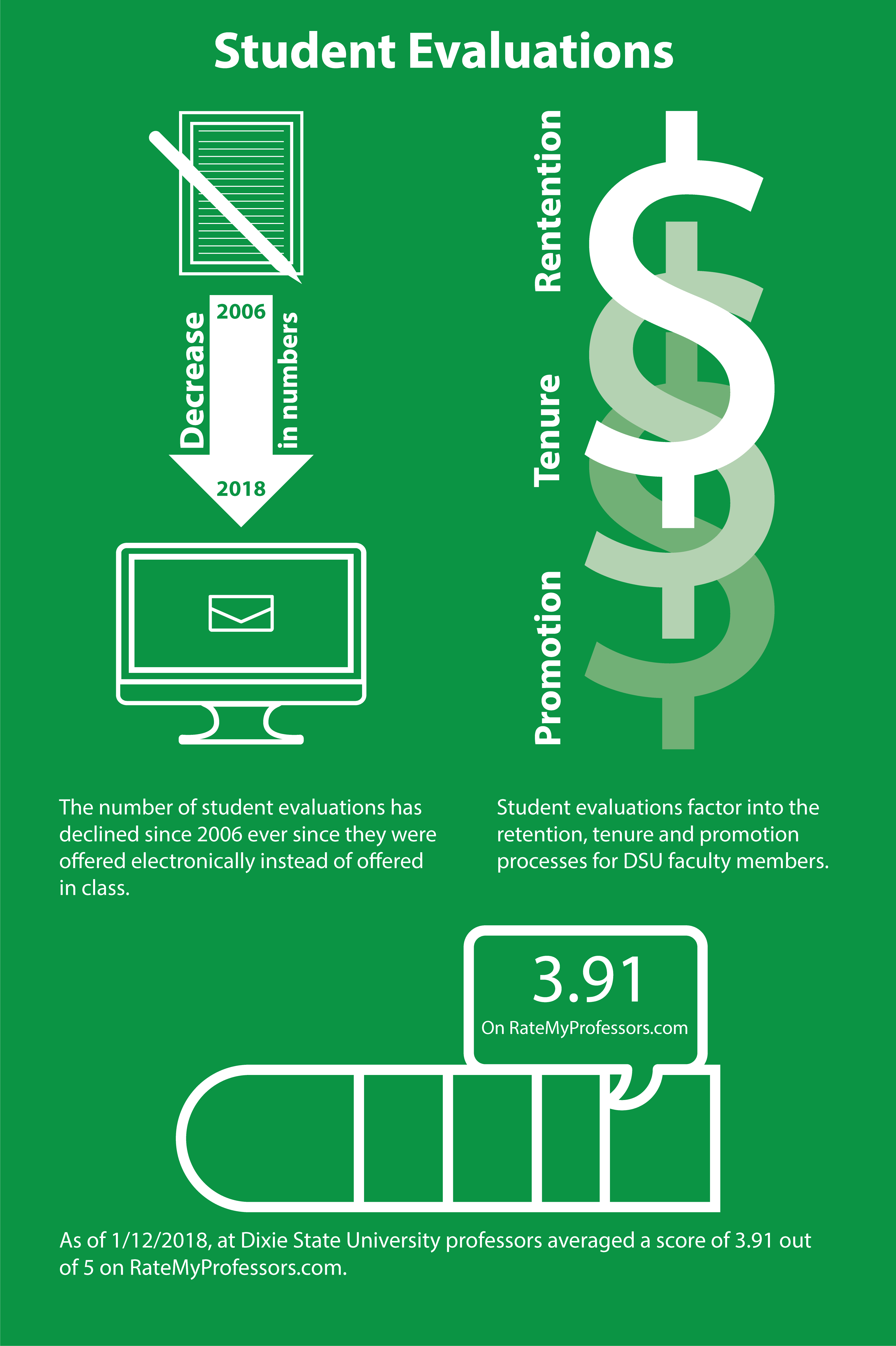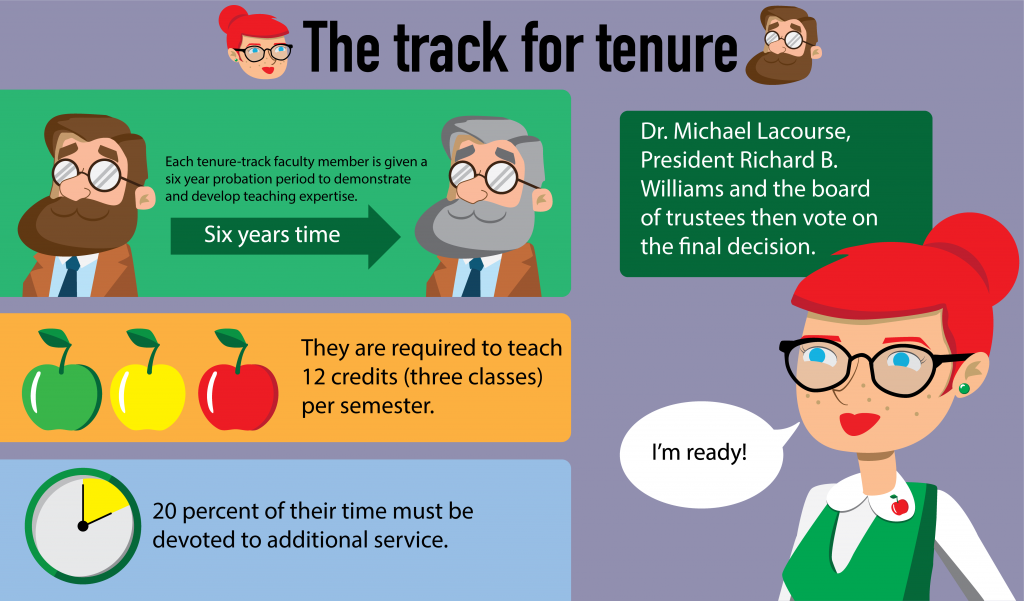Instructors at Dixie State University lose opportunities to master their craft due to low response rates for the end-of-semester student course evaluations.
Low response rates on these evaluations may also reflect poorly on the instructors. These evaluations are seen by chairmen, deans and administration, and factor into the retention, tenure and promotion processes for DSU faculty members.
“Student evaluations are incorporated into what we call their [faculty] electronic portfolios,” said Michael Lacourse, provost and vice president of academic affairs. “I do look at [student evaluations] when they are in the e-portfolios and a faculty member is requesting to be tenured, promoted or retained.”
Many professors are also worried about the effectiveness of their students’ feedback when it is offered.
Hosok O, assistant professor of history, said he believes most of the feedback from the course evaluations isn’t relevant to the class or his teaching.
“People love or hate [their professors],” O said. “[The feedback is] becoming more personal, not about evaluating your own experience as a student, so if they really want to improve this I think students should be managing it, students should distribute, students should provide, and students should judge … it should be a student-run process.”
Not all instructors have problems with the student evaluation system. Jonathan Morrell, director of Student Support Services and adjunct instructor, said his response rates have risen in the last few semesters.
“The reason why?” Morrell said. “I attach it to extra credit.”
Morrell said this hasn’t negatively affected the quality of feedback he gets because he takes time in class to explain the importance of the student evaluations and how they can help all professors.
“I tell my students, ‘This is your moment to anonymously critique,’” Morrell said.
Tyson Layton, a freshman bioinformatics major from Warrenton, Virginia, said he didn’t even know about the student course evaluations, but if he did, he probably wouldn’t complete one, even with the offered incentive of early grade access.
“At the end of the semester, I took my finals and I was done,” Layton said. “I wasn’t obsessed about my grades, so I probably wouldn’t even check them early.”
Layton said the best thing he could get out of completing a course evaluation is extra credit.
Jim Haendiges, associate professor of English, like many other faculty and staff members, said the evaluations have been problematic for years and he disagrees with the idea of using extra credit as incentive.
“I wouldn’t be supportive of any kind of grade enhancement or anything,” Haendiges said. “I personally would not give anyone extra credit for filling out an eval…I see a lot of students not seeing what it really is meant to be.”
Lacourse said although DSU administration knows about the overall drop in response rates for the course evaluations, the exact answers to why this is happening and how it can be fixed are still unclear. Like many DSU faculty, Lacourse disagrees with the use of extra credit as incentive, and said the main reason students are not completing the evaluations is the fact that it is delivered digitally through email, rather than face-to-face which would give all students a chance to complete the evaluation during class time.
Lacourse said there is now a task force comprised of faculty and staff members that has been observing faculty workload, faculty evaluation and faculty compensation for about 18 months. The sub-committee that concentrates on faculty evaluations will find a way for DSU to move forward and provide faculty with accurate, reliable, meaningful and actionable feedback on their work.
Lacourse said: “In the end, it’s probably going to be what we call a 360 evaluation where the faculty member does continue to receive student evaluations, but they’re also going to have peer evaluations and evaluations from their department chair and so forth…The most effective way that I’ve seen is when it’s on paper, in the class and it’s lead by a student…We need to find a way to comprehensively provide an overall evaluation of a faculty member.”



